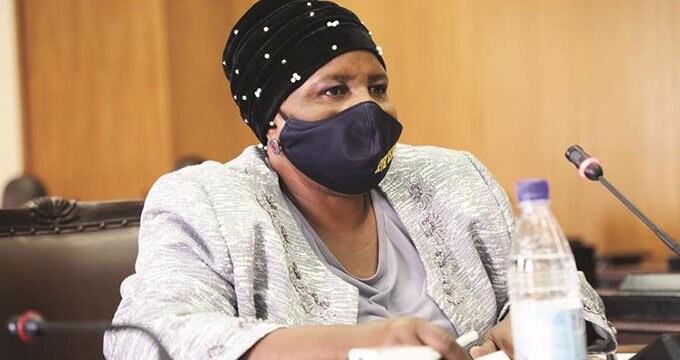Measures put in place to tame the cowboys running the foreign currency black market will cause minimal economic disruption and inconvenience, while the mobile money systems are brought under banking controls and practices announced three months ago.
The measures are three-fold. Individuals using their general cellphone line to send and receive payments, are not affected, so can continue as before within the fairly tight limits already in place.
Merchants have had their special lines converted to one-way traffic. They can receive payments, so their customers can continue to use mobile money to buy stuff, but cannot make payments, except in an exceptionally limited range.
But they can continually empty their mobile wallet into their bank account and then make payments, including online payments, through their bank.
This, except for a curious small group of businesses who do small-scale contract work, will not cause any hardship, at least for the 100 percent honest, beyond a slight increase in bank charges.
Advertisement
Almost everyone in business has a bank account and in fact uses that bank account as their main way of maintaining independent records for tax and other accounting purposes. The net result of the one-way merchant lines is thus negligible.
The agent lines are now closed, at least temporarily, but the original purpose of those lines, to allow people to send cash across the airwaves, has long since died.
No one getting mobile payments visits an agent to buy banknotes on their way to the shops. The honest agents, not a large group, had already lost the business, so the suspension does not affect them or, in practical terms, the ordinary public. And no one needs to mourn the disruption to the dishonest.
The measures were put in place to starve the foreign-currency black-market of liquidity and, simultaneously, to allow investigations into just what has been going on recently in mobile money systems, while the operators of these systems are brought under the effective control of the Reserve Bank of Zimbabwe, and start following the normal banking procedures laid down by that banking regulator.
The new rules and regulations were announced by the Ministry of Finance and Economic Development on 27 March in a statutory instrument (SI80 of 2020) and if they had been promptly implemented, in letter and spirit, we would not be in the present position.
Part of the problem has been the tremendous growth in mobile phone systems, and the whole new transaction culture that has developed, in just under nine years since the mobile money system was launched in September 2011.
And many will be astounded to realise just how new the whole system is. At the launch, cellphone transfers were simply a way of sending cash, and the whole system was largely built around a huge network of agents.
You went to an agent, handed over cash, paying a small fee, and the recipient would then go to an agent to collect the money, again for a small fee. You could not pay bills, you could not buy things in a shop, you could not do business.
Innovation, cash shortages, convenience and cheapness saw the system expanding rapidly. Shop owners started accepting phone payments, and were given dedicated merchant lines that were, in later years, connected directly to the till systems.
Even small traders “took EcoCash” as the name for the dominant system became generic. Local authorities, the tax collectors, Zesa and many others wired themselves into the phone cash networks.
Advertisement
Unlike the banking system, which followed with its own in-house and then common Zipit systems, there were no monthly charges. The whole was funded through trivial transaction charges, which made it ideal for the ordinary person.
And it was simple to get into the system, you just had to buy a line from a provider under the simple rules set by the telecommunications regulator, which required verifiable identification, but no financial history, no guaranteed income, no letters of recommendation.
All this simplicity, convenience, low cost, and universal acceptance converted a money transfer business into what amounted to a banking system, a fairly simple one, but still looking more like a deposit bank than a phone company.
Cash shortage in recent years simply accelerated the transformation. No one expected or anticipated this whole new world in 2011.
And that is where the problems arose, with banks operating like a phone company. So the less pure moved in to take advantage of the potential slackness.
The authorities are now convinced that most agents, having lost their original business, were using agent lines to either buy and sell cash, at an illegal premium, or being the middlemen in the black market for foreign currency.
Some merchants then stepped in, using their merchant accounts to send large sums to agents and runners with ordinary lines to buy up those small sums from tens of thousands receiving diaspora remittances, and all this being done without anyone in authority being able to see what was happening.
The mobile money operators were allowing large balances to build up in system wallets, not backed by trust accounts in banks, and had no idea who their customers transferring large sums were, or even how many lines a particular customer possessed.
So now we need short-term and long-term solutions to the dangers of the new world, while keeping the convenience, universal acceptance and low costs. The short-term measures are the one-way merchant accounts, which stop abuse without hitting business, and the end of agencies, which if they ever re-open will do so under quite different rules.
The long-term measures are enforcement of the March regulations, with the RBZ being able to see all transactions as they occur, with the mobile money concerns needing to know their customers a lot better than a phone company needs to know, with all wallet balances matching balances in trust accounts in real banks, so no one is “printing” extra billions privately, and with swift investigation and action on dubious transfers.
Advertisement
Managers of these mobile systems now need to start thinking like the bankers they have become rather than the phone company executives they were, must recognise that the revolution they created has been successful beyond their dreams, and must work swiftly with the RBZ and the Ministry of Finance and Economic Development to implement needed rules and write a new “Highway Code” for their business, that keeps ordinary pedestrians and drivers safely on the highway but eliminates the speeders, red-light jumpers, and others who cause the dangers.
– HERALD







